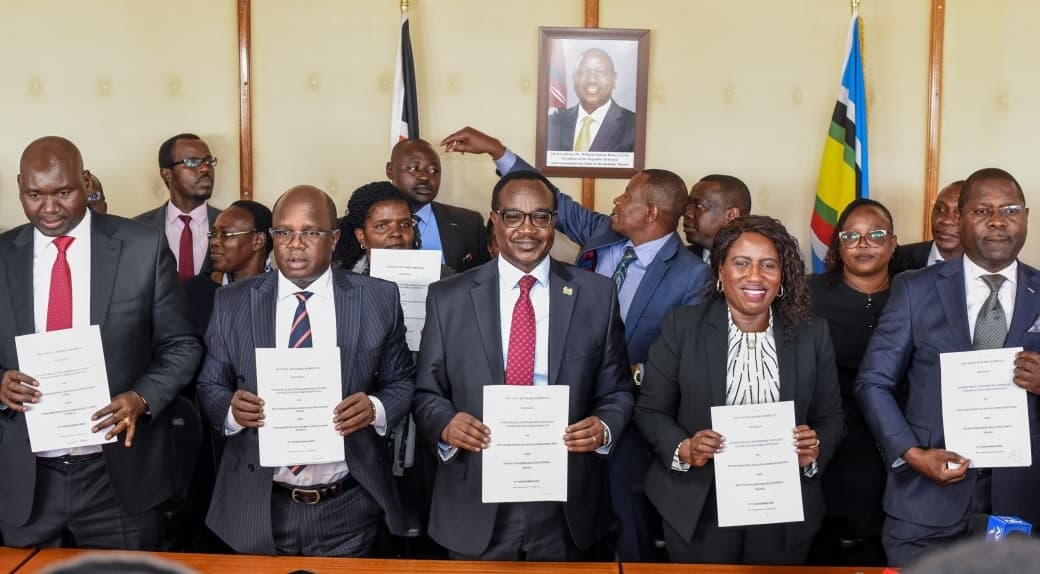We're loading the full news article for you. This includes the article content, images, author information, and related articles.
The agreement ends a seven-week industrial action that paralysed public universities, with a pact to clear KSh 7.9 billion in arrears. The deal raises critical questions over sustainable higher education funding and the recurring cycle of strikes in Kenya.

Academic activities are set to resume across Kenya's public universities after lecturers and allied staff called off a 49-day nationwide strike on Wednesday, 5th November 2025. The breakthrough came after union leaders signed a return-to-work formula with the government, ending an industrial action that began on 17th September 2025 and severely disrupted the academic calendar.
The agreement was reached following a high-level meeting at the Ministry of Education's Jogoo House offices. It was signed by representatives from the Universities Academic Staff Union (UASU), the Kenya Universities Staff Union (KUSU), and the Kenya Union of Domestic, Hotels, Educational Institutions, Hospitals and Allied Workers (KUDHEIHA), alongside the Inter-Public Universities Councils' Consultative Forum (IPUCCF), which represents the university employers. Education Cabinet Secretary Julius Ogamba and Higher Education Principal Secretary Dr. Beatrice Muganda Inyangala witnessed the signing.
The central issue of the dispute was the government's failure to honour the 2017–2021 Collective Bargaining Agreement (CBA), which left lecturers owed KSh 7.9 billion in salary arrears. Under the newly signed formula, the government has committed to settling this amount in two instalments.
The first tranche, amounting to approximately KSh 3.9 billion, will be paid between November and December 2025. The remaining balance is scheduled to be disbursed in the 2026/2027 financial year, by July 2026. UASU Secretary-General Constantine Wasonga confirmed the terms, stating, “We have agreed to be paid in two instalments... We are happy that we have secured the whole amount.”
Crucially, the agreement includes a non-victimisation clause, ensuring that no university employee will face disciplinary action for participating in the strike. All show-cause letters, suspensions, or dismissals issued during the 49-day period are to be unconditionally withdrawn. Furthermore, any salaries withheld for September and October will be released, with payment expected no later than Monday, 10th November 2025. The parties also committed to concluding negotiations for the overdue 2025–2029 CBA within 30 days.
The seven-week strike caused significant disruption for thousands of students, halting lectures, stalling research, and forcing several universities to close campuses indefinitely, including Laikipia and Egerton Universities. The paralysis raised fears of a lost semester and delayed graduations.
Following the agreement, union officials have assured students that lecturers are committed to recovering the lost time. Universities are expected to immediately recall students and issue revised academic calendars to compensate for the seven weeks of inaction. In his address, Wasonga apologised to students for the lengthy disruption but affirmed the union's resolve to ensure the semester is completed.
This strike is the latest in a long history of industrial disputes that have plagued Kenya's public university sector, often stemming from the government's failure to fully implement negotiated CBAs. The pattern of strikes followed by negotiated settlements that are later dishonoured has created a cycle of instability, undermining the quality and predictability of higher education.
The intervention of the National Assembly's Committee on Education, chaired by Tinderet MP Julius Melly, was instrumental in breaking the recent stalemate. During tense parliamentary sessions, lawmakers pressed the government and Treasury officials to resolve the dispute, which had seen lecturers reject earlier offers of phased payments. While the immediate crisis is resolved, the fundamental challenge of chronic underfunding and its impact on staff remuneration and university operations remains a critical issue for national policy.
Keep the conversation in one place—threads here stay linked to the story and in the forums.
Sign in to start a discussion
Start a conversation about this story and keep it linked here.
Other hot threads
E-sports and Gaming Community in Kenya
Active 9 months ago
The Role of Technology in Modern Agriculture (AgriTech)
Active 9 months ago
Popular Recreational Activities Across Counties
Active 9 months ago
Investing in Youth Sports Development Programs
Active 9 months ago
Key figures and persons of interest featured in this article